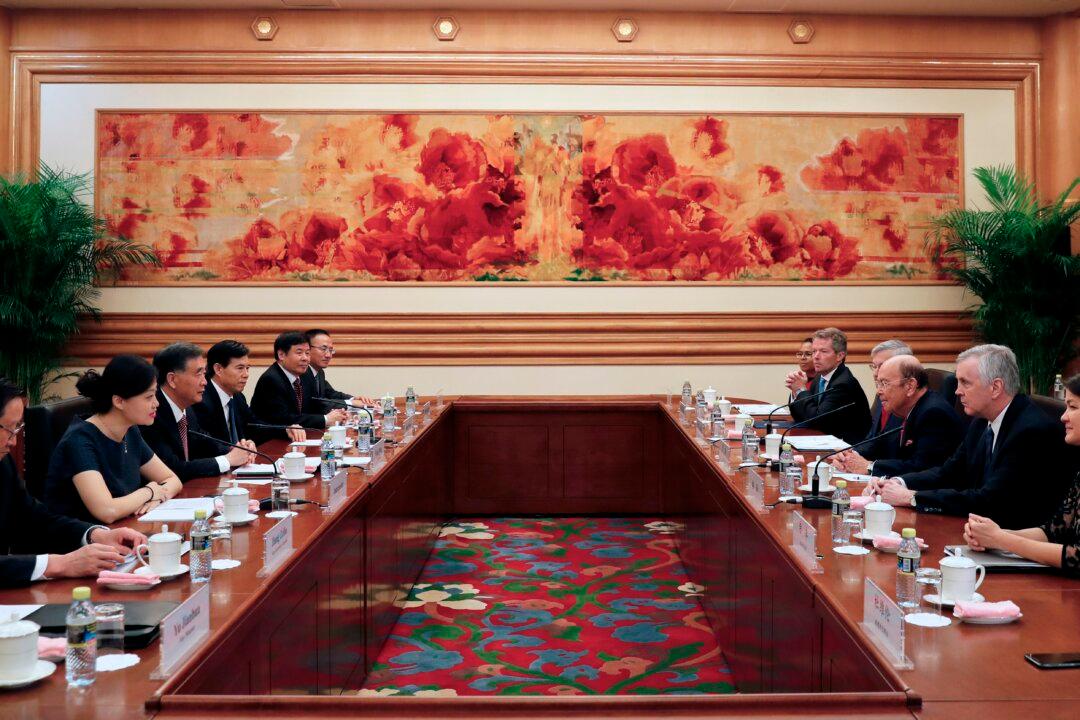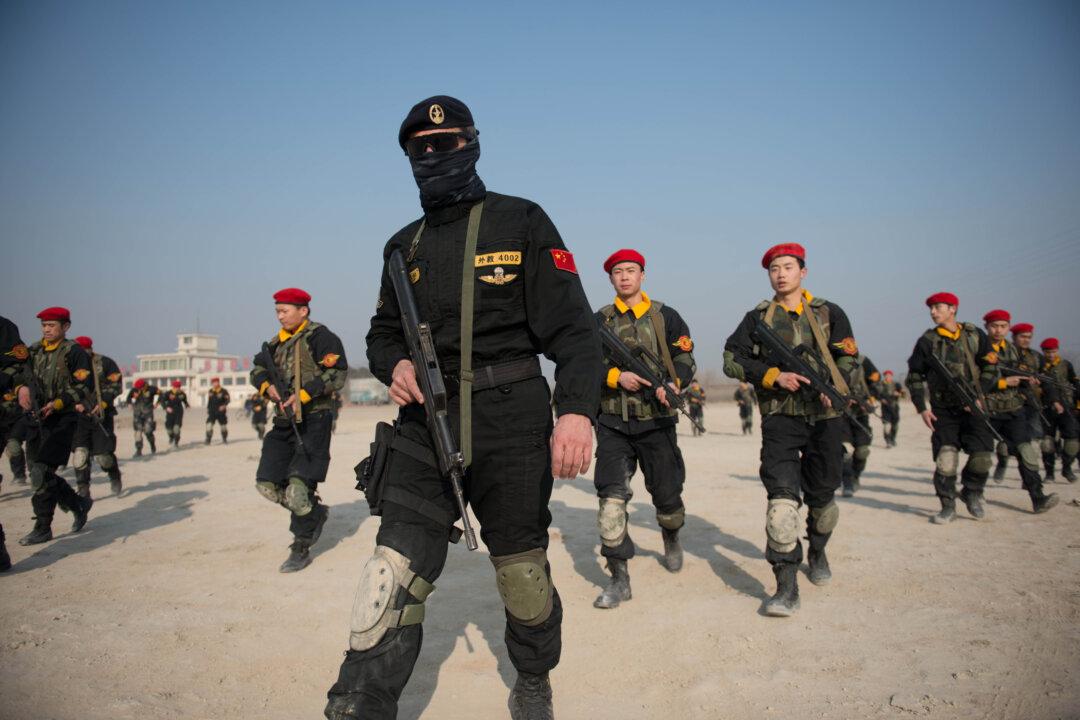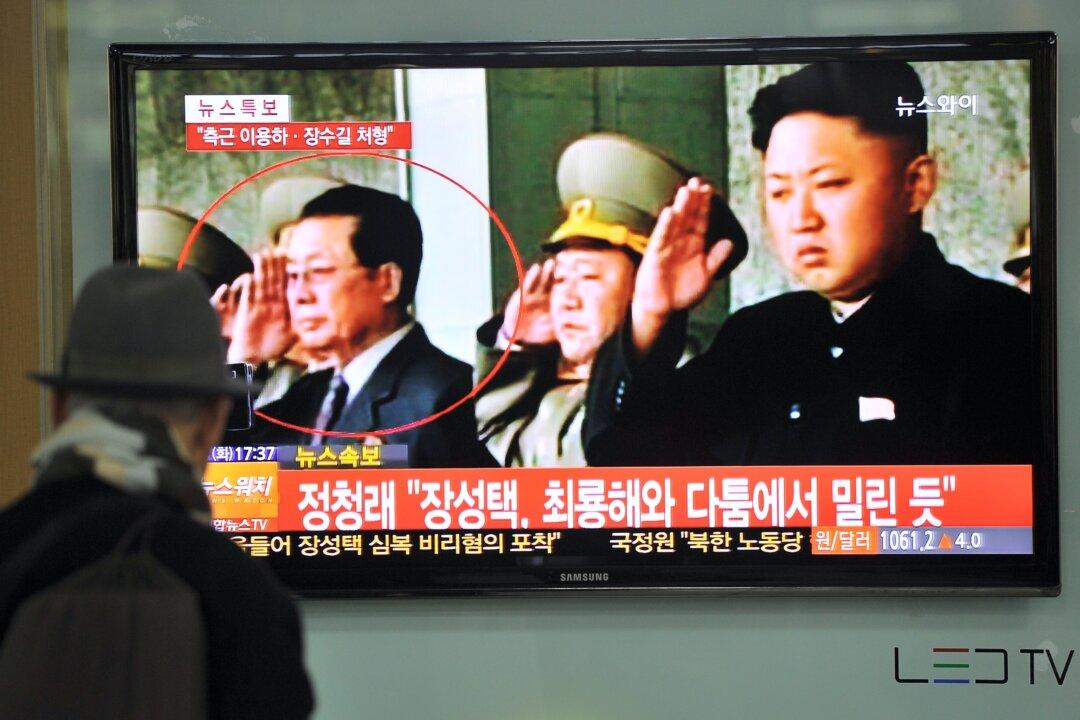There are at least 3,000 years of history in the relationship between China and the Korean Peninsula. The first historical record dates from the time when Emperor Wu of the Zhou Dynasty established feudal lordships.
Ji Zi, the brother of King Zhou (the last emperor of the Shang Dynasty), was enfiefed as lord in Pyongyang, and the name of the country became ChaoXian (North Korea). At that time, the southern part of the Korean Peninsula had three similar countries; all were called Han (South Korea). Now the name of the country in the south is called Han Country, as inherited by the tradition of their ancestry.
Several hundreds years after Emperor Wu of the Zhou Dynasty enfiefed feudal lords, the North Korea of Ji Zi’s time no longer existed. The Han Dynasty made it a prefecture called Xuan Fu Prefecture, which means the prefecture of black tigers.
The name suggests there were a lot of Siberian tigers in this region from ancient times, which produced a lot of tiger skins. People in this region were also very intrepid, producing heroes who could conquer tigers.
Several hundred years later, the Korean ethnic group moved into the area and became its majority population. After the Koreans established their country, their relationship with the dynasty in the Central Plain of China was complicated.
Sometimes they were at war, while sometimes they had peace. Sometimes they were subjects of the Chinese dynasties and sometimes they were independent. However, their culture and trade relationships with China were always tight.
The festival ethnic clothes of both South and North Korea nowadays are actually the clothing style of the Song Dynasty in China preserved in a very complete state. The folding fans we Chinese use during the summer really came from Korea.
During the Ming Dynasty in China, a Korea under Kings of the Li family was established. The relationship between this peninsula kingdom and the Dynasty in the Central Plain of China was stabilized for several hundred years.
However, the social structure in Korea did not copy what was in China. Instead, it continued a feudal society that was similar to what was in Japan. The majority of the population were slaves and surfs with a backward production capacity.
Its economy, politics and defense all relied on the Chinese dynasty, which was similar to the relationship between the Western colonies and their suzerain states.
Modern Korea
This situation continued until the Sino-Japanese War of 1894-1895. Afterwards, the society, economy, and culture of Korea made rapid progress developing towards a modern country. After World War II, according to the agreement between United States and the Soviet Union, the peninsula was divided into two halves.
The north became a Communist country, while the south continued learning from the West. Eventually, the south was able to join ranks with the Western countries and modernize. This separate development was similar to the tracks of the south and north parts of China.
However, different from ancient times, the current Korea is not a feudal culture lagging behind the Central Plain of China. Japan, which was moving towards modernization, was able to inject a lot of content into the Korean culture—besides science, technology, literature and music, etc. it also introduced the nationalism which was once popular in Europe.
The Koreans gradually gave up the Confucius culture that they had followed for several years, and resumed the sometimes arrogant, independent spirit of the ancient Koreans.
Thus, not only have the people in its southern part continuously protested against the Americans who protect them, its northern dictators have never really been thankful to the Chinese Communist regime that protects them.
Now and then, these dictators have had lousy ideas that cause a headache for the Chinese regime. Before the Soviet Union collapsed, Kim Il Sung drifted between the two suzerain states of China and the Soviet Union—by relying on the rewards bestowed by these two sides, he maintained the north’s extremely backwards dictatorial regime.
By the time of Kim Il Sung’s son, Kim Jong-Il, there was no Soviet Union, thus he lost the opportunity to play double dealer. So Kim Jong-Il simply played hoodlum. Sometimes, North Korea would be the hatchet man for the Chinese Communist regime; but now and then, Kim Jong-Il would alternate with misbehavior to the Chinese communists as a way to show his independence in front of the North Korean people, to encourage their arrogant psychology and so maintain his authority.
However, this kind of cheap trick of deception is hard to maintain. Once it is exposed, it will lead to collapse. Probably the third little emperor of these Kims has realized this, and thus he is getting ready to learn something from Deng Xiaoping in trying to make some economic reform. Although he is very shy and secretive on this matter, that is what the trend is, without a road for him to turn around.
Asking for Candy
After the dissolution of the Soviet Union, the Chinese Communist regime became the only suzerain state for North Korea. By relying on the backwardness of the North Koreans, the Chinese Communists were able to force the little Kim emperors to be the pawns of the Chinese regime by threatening them with their own survival.
Now the Chinese communists are still trying to control North Korea’s open trade, continuously using North Korea as its stooge.
Under these circumstances, the scheme of South Korea and the United States to use aid to replace the control of the Chinese Communists came out. But this scheme for sure will not be successful, for they do not understand the Communist Party.
The dictators of the Communist Party are not fools. They know that to tolerate misbehavior of their own Communist confederates will not subvert their dynasties. But tolerating the control of their confederates by a hostile political system will cause the dictatorial political system of the Communists to soon collapse or deteriorate.
Maintaining the dictatorial rule of the Communism that unifies church and state is always their basic principle. On this issue, Deng Xiaoping was most candid. The others may not speak out but have clear minds. These Communists will not be tricked easily.
Exactly from this basic principle, the Chinese Communists maintain their economic aid to the dynasty of this third Kim emperor with full confidence. Kim Jong-un, this third emperor, behaves just like his father Kim Jong-Il—now and then he does something that oversteps the boundary, acting like a spoiled child and asking for candy.
Kim Jong-un first played with missiles, then nuclear weapons. On the surface, he seems to be doing this to target the West. In reality, he stages these actions for the benefit of Beijing, as a way of asking for more candy.
Playing With Fire
However, the detailed situations of the three parties have a lot of complications. This conduct of playing with fire for the purpose of getting candy could really cause a major fire to break out. There are two main reasons.
The first is due to the internal conflict within North Korea. The rule of extreme dictatorship is very hard to maintain with lies nowadays as information is getting easier to propagate. Even the Chinese Communist regime is hard to maintain despite making big compromises to Chinese society, not to mention that the cruel rule of the Kim dynasty makes the North Korean people less and less tolerant of it.
The motivation for rebelling from within will come out of this, and is getting stronger and stronger. This situation will cause the rulers to consider releasing the internal conflict outwards. Or, to put it simply, to use war to resolve the internal conflict.
The second reason is that this stooge psychology of the Kim dynasty is secure in the knowledge of being strong due to the support of the Chinese regime, without concern for proper restraint. When it is needed, it will do as it pleases, following its arrogant mentality.
After all, it has connections with the powerful, so it will try to resolve troubles by war. By then, the Communist Chinese masters will be dragged into an unprepared war by this arrogant flunky, just as in 1950 when China was pulled into a war that was extremely unfavorable to China by his grandfather.
This new messy war will be extremely unfavorable to China, the United States, and South Korea. It will only be favorable to the third emperor of the Kim Dynasty, and maybe also to Russia.
Neither the United States, Japan, nor South Korea have the ability to control this prospect; only China may change this situation. That is, by clearly withdrawing its attitude of unconditional protection of the Kim Dynasty, forcing it to stop its risky behavior and to initiate political and economic reforms of its system.
If China continues what it did during the Jiang Zemin and Hu Jintao eras, which was to offer candy when the spoiled kid made trouble, then soon North Korea will be a disaster for China. China must discipline this misbehaving dog and put a chain around its neck, thus to make it at least follow the master’s steps instead of freely causing trouble. Otherwise, China should replace this dog with a better one.
Wei Jingsheng is a prominent Chinese dissident. Human rights prizes he has won include the Robert F. Kennedy Memorial Human Rights Award in 1996, the European Parliament’s Sakharov Prize for Freedom of Thought, and the Olof Palme Memorial Prize.



